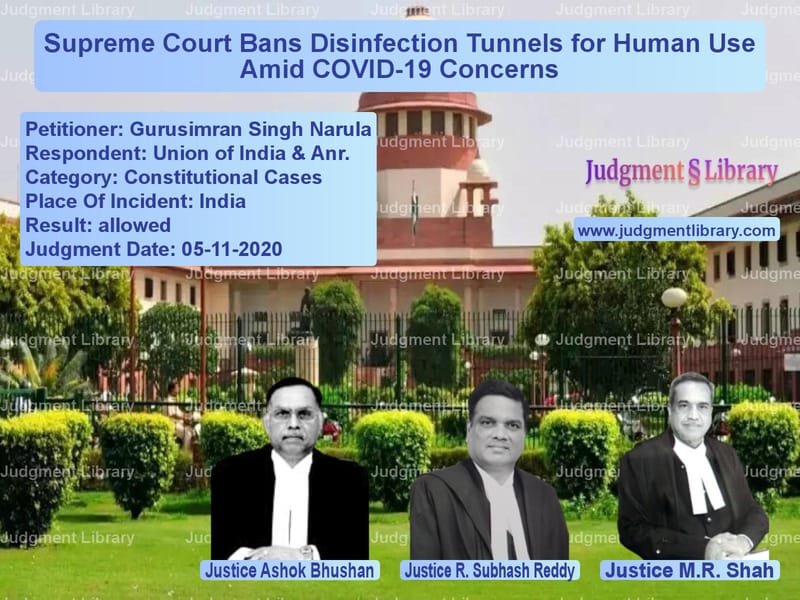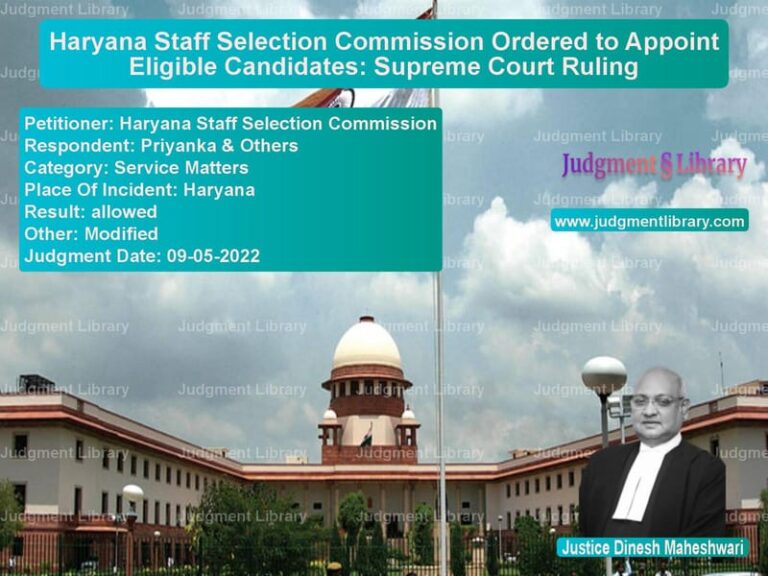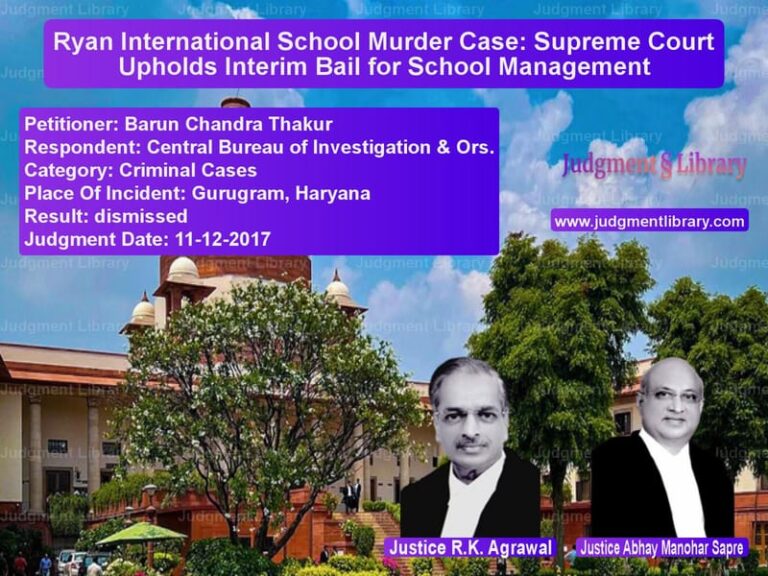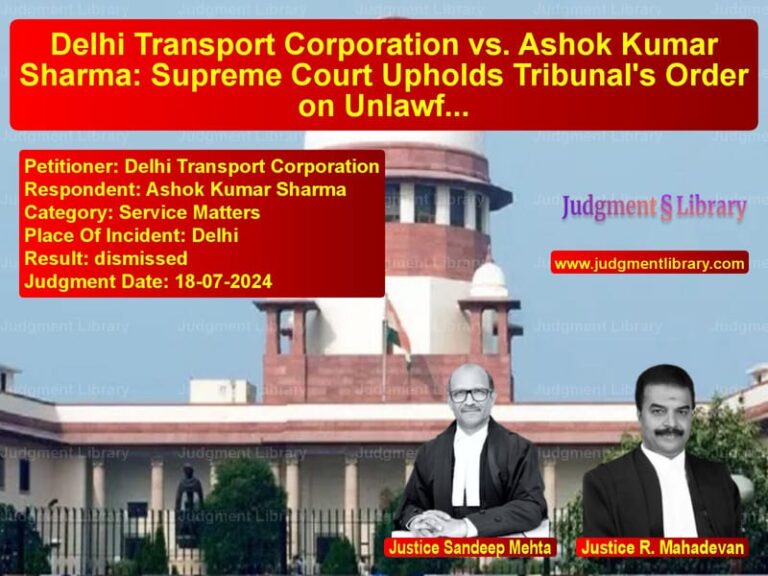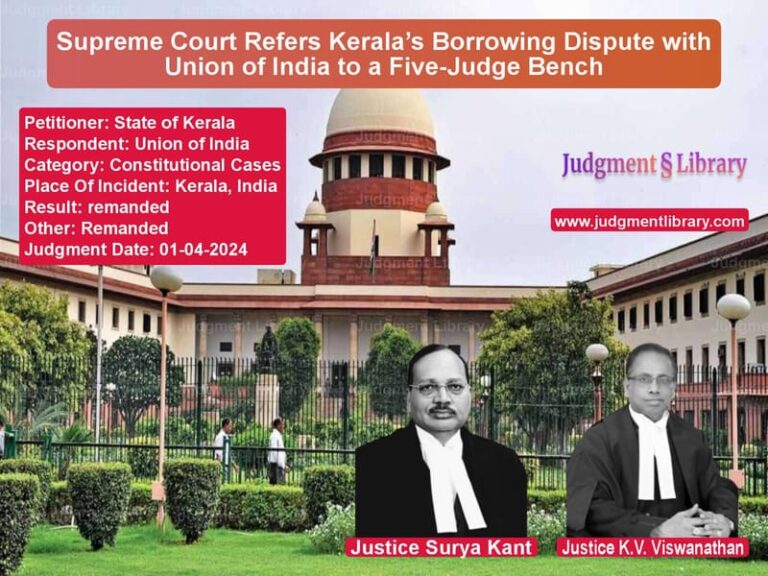Supreme Court Bans Disinfection Tunnels for Human Use Amid COVID-19 Concerns
The Supreme Court of India, in a significant ruling, addressed the controversial practice of spraying disinfectants on human beings during the COVID-19 pandemic. The case, filed as a public interest writ petition under Article 32 of the Constitution by Gurusimran Singh Narula, sought a blanket ban on the use of disinfection tunnels involving chemical, organic disinfectants, or ultraviolet rays for human beings. The petitioner contended that such measures were not only ineffective but also hazardous to human health, violating the fundamental Right to Health under Article 21.
The case was heard by a three-judge bench consisting of Ashok Bhushan, R. Subhash Reddy, and M.R. Shah, who examined the scientific validity, regulatory oversight, and constitutional implications of these disinfection practices. The petition specifically challenged the unregulated use of chemical disinfectants and UV exposure, arguing that these measures lacked scientific basis and posed significant health risks.
Background of the Case
The COVID-19 pandemic, declared a global health emergency by the World Health Organization (WHO) on March 11, 2020, led governments worldwide to adopt measures to curb its spread. In India, the Ministry of Health & Family Welfare issued guidelines and advisories regarding disinfection and sanitation in public spaces. Despite the government advisory dated April 18, 2020, explicitly stating that spraying disinfectants on individuals was not recommended, several public authorities and private entities continued to install and promote disinfection tunnels.
The petitioner highlighted that organizations had been misleading the public with unverified claims about the effectiveness of such disinfection tunnels. The writ petition relied on international health advisories, including those from WHO, which categorically stated that chemical spraying on human beings does not prevent COVID-19 infection and could cause adverse health effects.
Key Arguments by the Petitioner
Gurusimran Singh Narula, appearing in person, presented the following key arguments before the Court:
- There is no scientific evidence that human disinfection tunnels are effective in preventing COVID-19 transmission.
- Government authorities failed to take strict action despite issuing an advisory against the use of such tunnels.
- Spraying disinfectants, especially sodium hypochlorite and other chemicals, can cause skin irritation, respiratory distress, and other health issues.
- Many private businesses had started producing and advertising self-certified “organic” disinfectants without regulatory approval.
- The practice violates the fundamental Right to Health under Article 21 of the Constitution.
Response by the Government
The Solicitor General, representing the Union of India, submitted that the Ministry of Health & Family Welfare had already issued a clear advisory against the use of disinfection tunnels. The government stated that:
- No official authorization had been given for installing, advertising, or using human disinfection tunnels.
- The April 18, 2020, advisory had explicitly warned against spraying disinfectants on individuals.
- Responsibility for enforcing these guidelines rested with the States and Union Territories.
Observations of the Supreme Court
The Supreme Court acknowledged that while the Ministry of Health & Family Welfare had issued advisories, it had failed to enforce them effectively. The Court noted:
“The Right to Health is an integral part of the Right to Life under Article 21. Allowing unscientific and harmful practices to continue despite clear advisories violates constitutional protections.”
The bench also referred to its previous rulings where public health measures were deemed a fundamental obligation of the State. Citing the case of Devika Biswas vs. Union of India (2016), the Court reaffirmed that health-related policies must be backed by scientific evidence and should not cause harm to citizens.
Final Verdict and Directives
After a detailed examination of the arguments, the Supreme Court issued the following directives:
- The Ministry of Health & Family Welfare must issue binding directions under the Disaster Management Act, 2005, to prohibit or regulate the use of disinfection tunnels.
- All States and Union Territories are required to ensure that such tunnels are not installed or used in public spaces.
- Immediate public awareness campaigns must be conducted to inform citizens about the dangers of chemical disinfection on human bodies.
- The government must establish strict regulatory measures for the production and advertisement of disinfectants used in public spaces.
Conclusion
The ruling by the Supreme Court serves as a strong precedent in ensuring that public health measures adhere to scientific principles and constitutional safeguards. The judgment reinforces the Right to Health as a fundamental right and underscores the responsibility of the government to prevent misleading and harmful health practices. With this decision, the Court has set a vital precedent for public health policies in India, ensuring that regulatory measures are effectively enforced to protect citizens from unscientific interventions.
Petitioner Name: Gurusimran Singh Narula.Respondent Name: Union of India & Anr..Judgment By: Justice Ashok Bhushan, Justice R. Subhash Reddy, Justice M.R. Shah.Place Of Incident: India.Judgment Date: 05-11-2020.
Don’t miss out on the full details! Download the complete judgment in PDF format below and gain valuable insights instantly!
Download Judgment: Gurusimran Singh Nar vs Union of India & Anr Supreme Court of India Judgment Dated 05-11-2020.pdf
Direct Downlaod Judgment: Direct downlaod this Judgment
See all petitions in Fundamental Rights
See all petitions in Public Interest Litigation
See all petitions in Legislative Powers
See all petitions in Judgment by Ashok Bhushan
See all petitions in Judgment by R. Subhash Reddy
See all petitions in Judgment by Mukeshkumar Rasikbhai Shah
See all petitions in allowed
See all petitions in supreme court of India judgments November 2020
See all petitions in 2020 judgments
See all posts in Constitutional Cases Category
See all allowed petitions in Constitutional Cases Category
See all Dismissed petitions in Constitutional Cases Category
See all partially allowed petitions in Constitutional Cases Category

